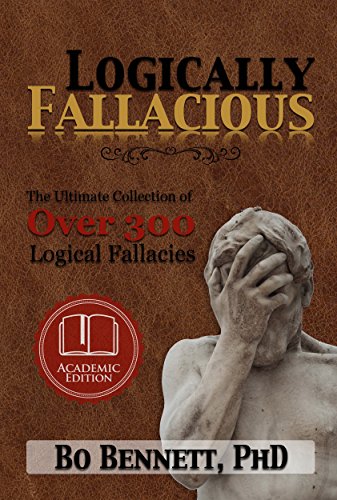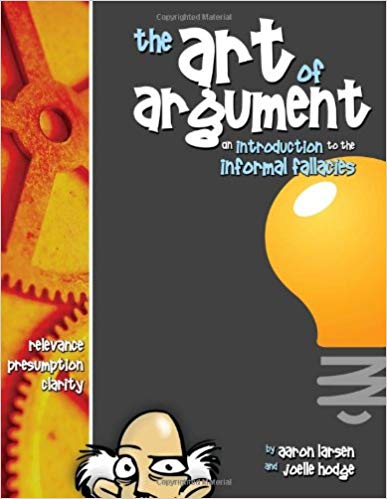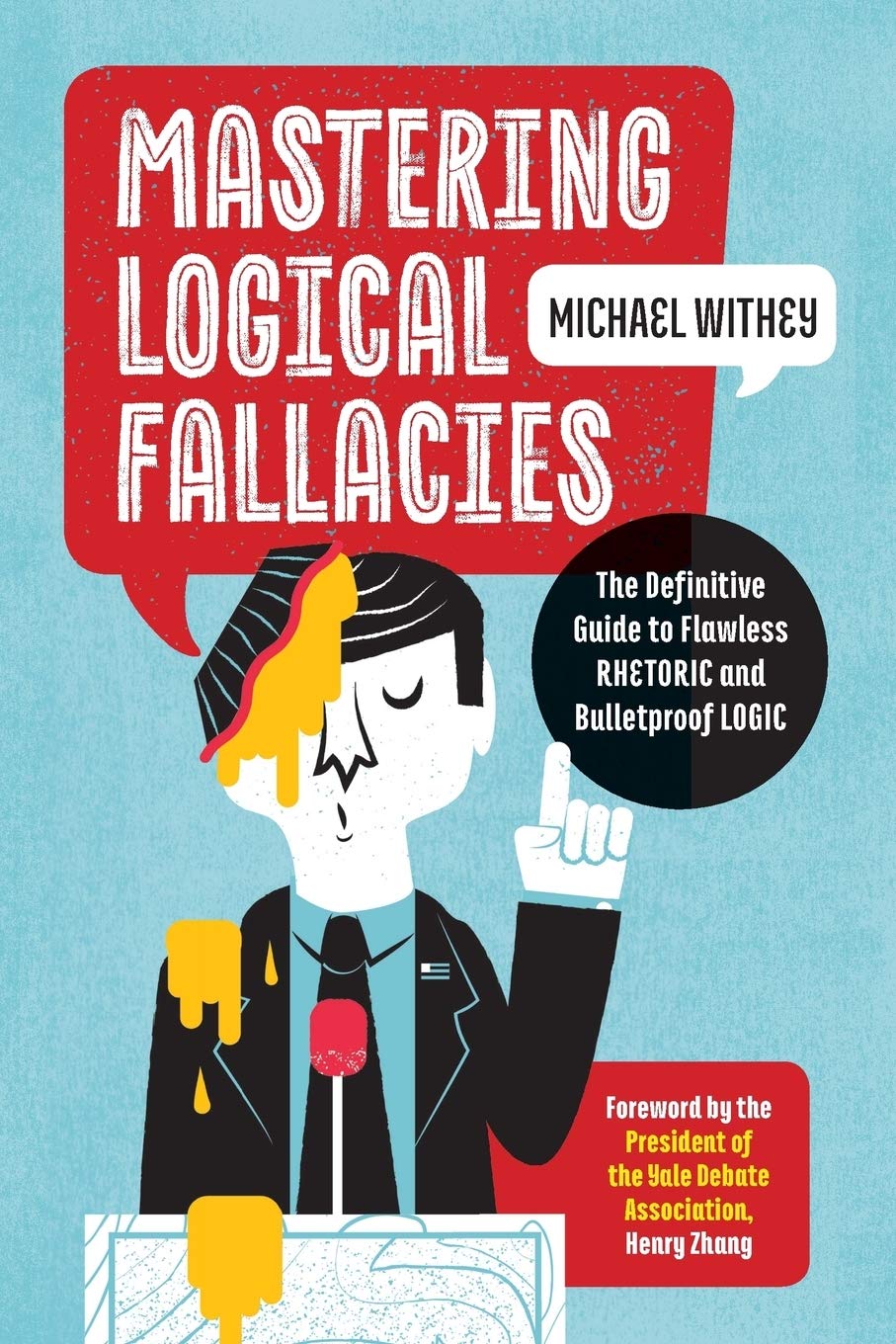
Fallacy Fallacy
This is an an argument that is based on false claims, but is logically coherent.
Example of Fallacy Fallacy
- Jenna thinks we should do yoga before work because it is natural and is said to relax you. Miles thinks we should also smoke pot before work for the same reasons.
- Whenever it rains, the sky is cloudy. The sky is cloudy now, so it must be raining.
It is possible for the sky to be cloudy but not to be raining.

Books About Logical Fallacies
A few books to help you get a real handle on logical fallacies.





Fallacy FallacyExtended Explanation
The Fallacy Fallacy, also known as the Argument from Fallacy, is a logical fallacy in which a conclusion is rejected solely because it has been derived from an argument that contains a fallacy. This type of fallacy is committed when someone concludes that a statement is false simply because the argument presented for it is invalid. The Fallacy Fallacy is an example of a formal fallacy, meaning that the logical form of the argument is incorrect. The fallacy is also known as Ignoratio Elenchi, which is Latin for “ignoring the refutation”.
The Fallacy Fallacy occurs when an argument is invalid, but the conclusion of that argument is actually true. This can happen when the premises of the argument are true, but the logical form of the argument is not valid. For example, consider the following argument: “All cats are animals, so all cats are mammals.” This argument is logically invalid because the conclusion does not follow from the premises. However, the conclusion is true (all cats are mammals), so rejecting the conclusion simply because the argument is invalid would be an example of the Fallacy Fallacy.
The Fallacy Fallacy is a logical error that is often used in informal debates and discussions. It is a fallacy because it fails to address the truth of a statement, and instead focuses on the logical form of the argument. This fallacy is also often used to discredit an argument without providing any evidence to support one’s own position. This is why it is important to pay attention to the validity of arguments and not just the conclusion when evaluating whether an argument is true or false.
The Fallacy Fallacy is a common mistake, and it is important to be aware of it when evaluating arguments. It is important to remember that even if an argument is logically invalid, the conclusion may still be true. Therefore, it is important to evaluate arguments based on the truth of the premises and the logical validity of the argument, instead of just focusing on the conclusion.